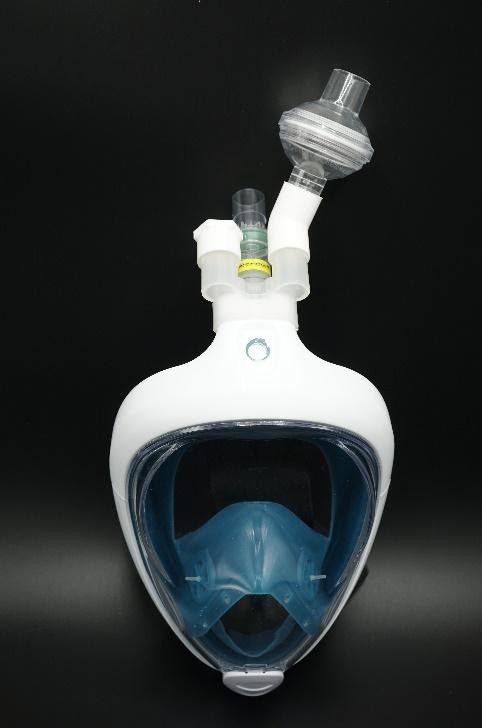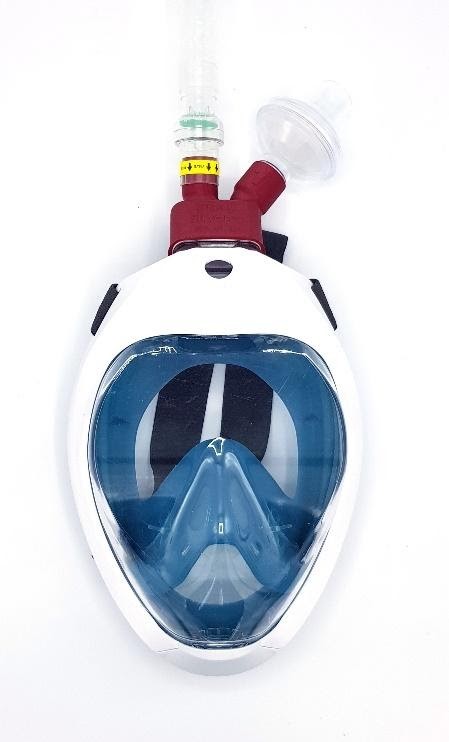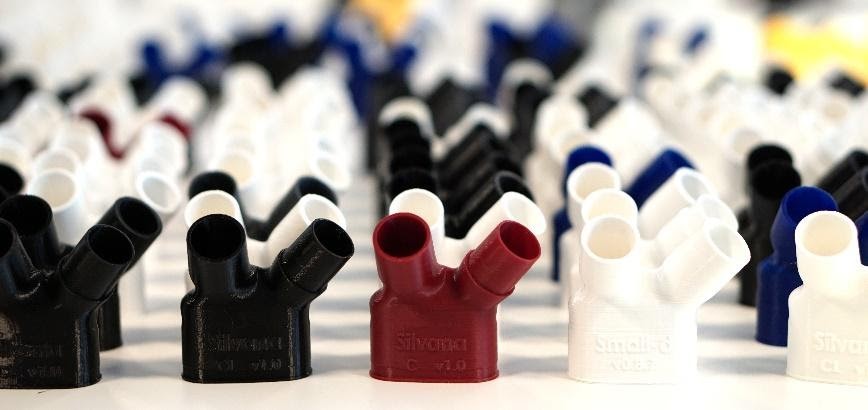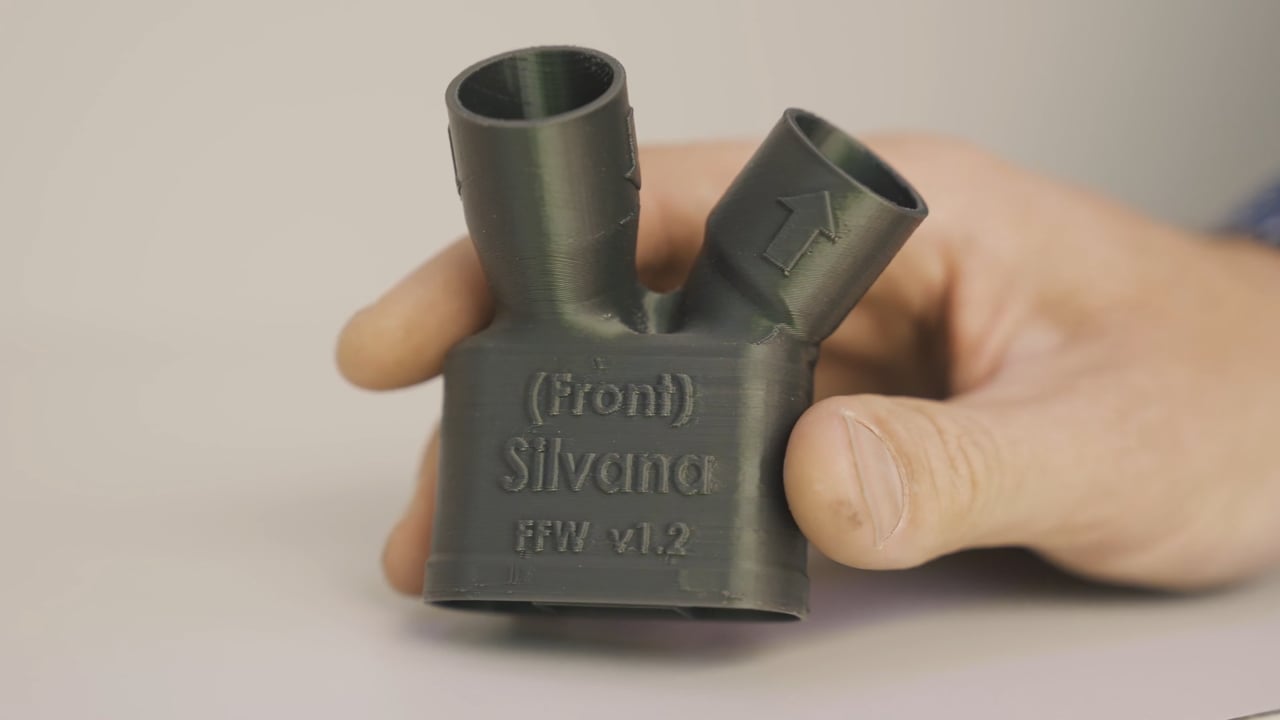With the huge influx of COVID-19 patients suffering from serious breathing issues in March/April 2020, hospitals were short on ventilation equipment. Many patients could still breathe autonomously but needed additional oxygen and some overpressure to expand the lungs. In addition, the exhaust needed to be filtered to prevent the spread of COVID-19 viruses within the hospital. An Italian hospital first re-purposed the Decathlon snorkel mask which is readily available and developed the first adapter, named the “Charlotte valve”, to properly connect it to oxygen supply and filters. This valve was difficult to 3D print and had other limitations, so there was demand for an improved design which would be faster and easier to 3D print while also offering different configurations.
The “Silvana valve” series is smaller and easier to 3D print than its Italian counterpart. More specifically, it avoids difficult overhangs and does not need any support. There are two or three ports to connect to tubes and/or filters.
The ports are positioned at 45° angles extending outwards, so that the base profile can be kept small while accepting relatively wide filters without blocking other ports. The adapter was produced at the University of Twente in close collaboration with the academic hospital in Strasbourg (IHU).
Newly-developed adapters (sent by specialised courier as traditional international parcel services were severely delayed) were directly applied to COVID-19 patients and the feedback was used to further improve the designs and make new configurations.
In April/May an injection-moulded adapter was developed which offers better airtightness and sterilisabilty than 3D printed adapters. However, the end of the first COVID-19 wave in May made all Decathlon adapters redundant.
The Decathlon masks with adapters filled an immediate short-term need in hospitals for treatment of COVID-19 patients that could still breathe autonomously. They significantly helped to reduce the demand for scarce ventilators during the crisis. On a higher level the project has shown that designers can offer effective short-term solutions when global supply chains are disrupted. In a crisis the demand for specific items such as ventilation equipment or PPE explodes, which traditional suppliers cannot meet. The local maker communities can jump into that gap to develop designs that can be 3D printed and distributed locally. It was essential to act quickly and collaborate closely with various doctors and other medical experts.







